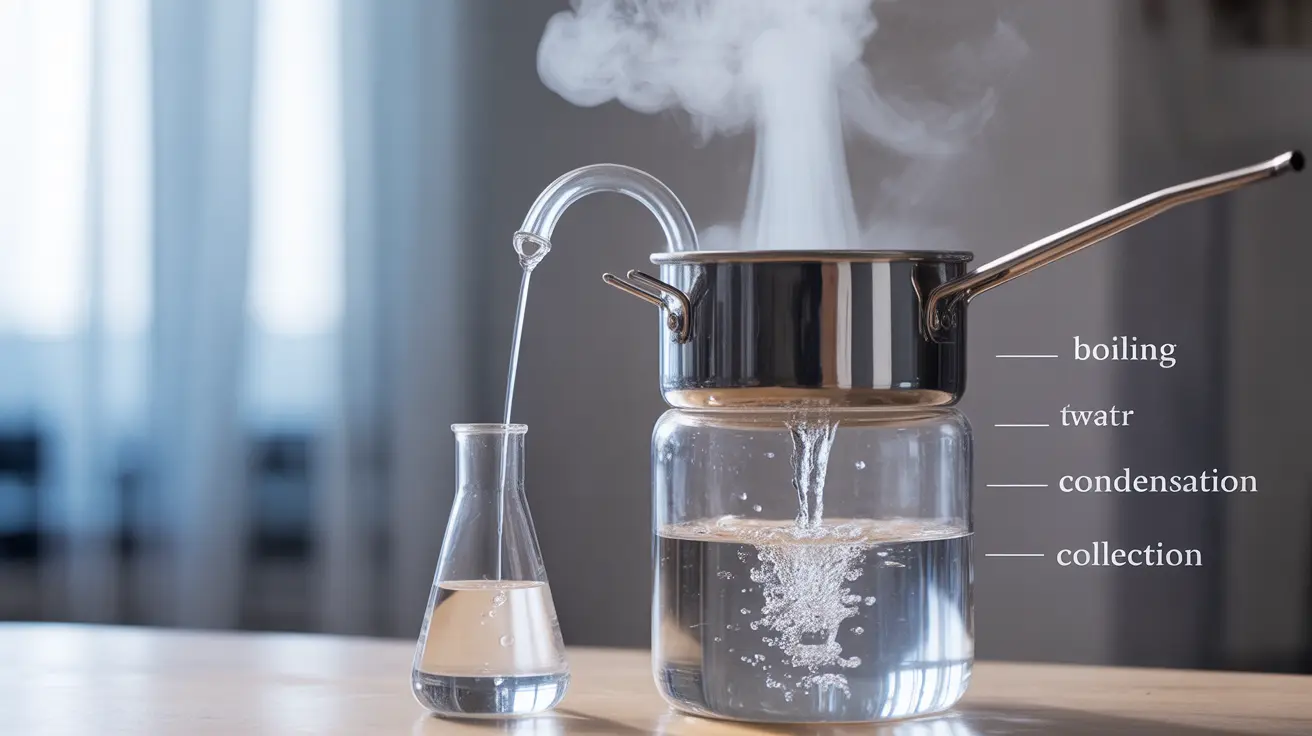Distilled water, created through a purification process that removes minerals and contaminants, has sparked considerable debate in health and wellness circles. As more people explore alternative water sources, questions about the safety and benefits of drinking distilled water have become increasingly common. This comprehensive guide will help you understand what distilled water is, its potential benefits and risks, and when it might be the right choice for you.
What Is Distilled Water?
Distilled water is produced through a specific purification process where water is boiled into steam and then condensed back into liquid form. This process effectively removes minerals, contaminants, and other dissolved solids, resulting in one of the purest forms of water available.
The Purification Process
The distillation process involves several key steps that distinguish it from other water purification methods:
- Heating water to its boiling point
- Collecting the resulting steam
- Cooling the steam in a separate container
- Condensing the steam back into pure water
Benefits of Drinking Distilled Water
There are several situations where distilled water might be particularly beneficial:
- For people with compromised immune systems
- In areas with poor water quality
- For specific medical equipment and procedures
- When traveling to regions with unreliable water sources
Understanding the Mineral Content
Unlike tap or spring water, distilled water contains virtually no minerals. This characteristic can be both an advantage and a potential concern, depending on your specific health needs and dietary intake.
Impact on Mineral Balance
While distilled water is free from potentially harmful contaminants, it also lacks the beneficial minerals found in other water sources. Your body typically obtains minerals from various sources, including:
- Food sources
- Dietary supplements
- Regular drinking water
- Other beverages
Safety Considerations
When considering distilled water as your primary drinking source, it's important to understand both the potential benefits and limitations. While the purification process removes harmful contaminants, it also eliminates beneficial minerals that your body needs for optimal function.
Frequently Asked Questions
Is it safe to drink distilled water every day?
Yes, it is generally safe to drink distilled water daily, provided you maintain a balanced diet that supplies necessary minerals. However, it's important to understand that distilled water won't contribute to your daily mineral intake like tap or mineral water would.
What are the health risks of drinking distilled water long term?
Long-term consumption of distilled water may potentially lead to mineral deficiencies if you're not getting adequate minerals from your diet. It's important to ensure you're consuming a balanced diet rich in essential minerals if distilled water is your primary water source.
Why does distilled water taste flat compared to tap or mineral water?
Distilled water tastes flat because it lacks the minerals that give regular water its characteristic taste. The distillation process removes these minerals, resulting in a taste that some people describe as "empty" or "flat."
Can drinking distilled water cause mineral deficiencies or electrolyte imbalances?
While drinking distilled water alone isn't likely to cause mineral deficiencies, it's important to ensure you're getting adequate minerals from your diet. People who exclusively drink distilled water should pay particular attention to their overall mineral intake through food and supplements.
When is distilled water a better choice than tap or bottled water?
Distilled water is particularly beneficial in situations where pure water is essential, such as when using medical devices, in areas with contaminated water supplies, or for people with severely compromised immune systems. It's also useful for travelers visiting regions with questionable water quality.




